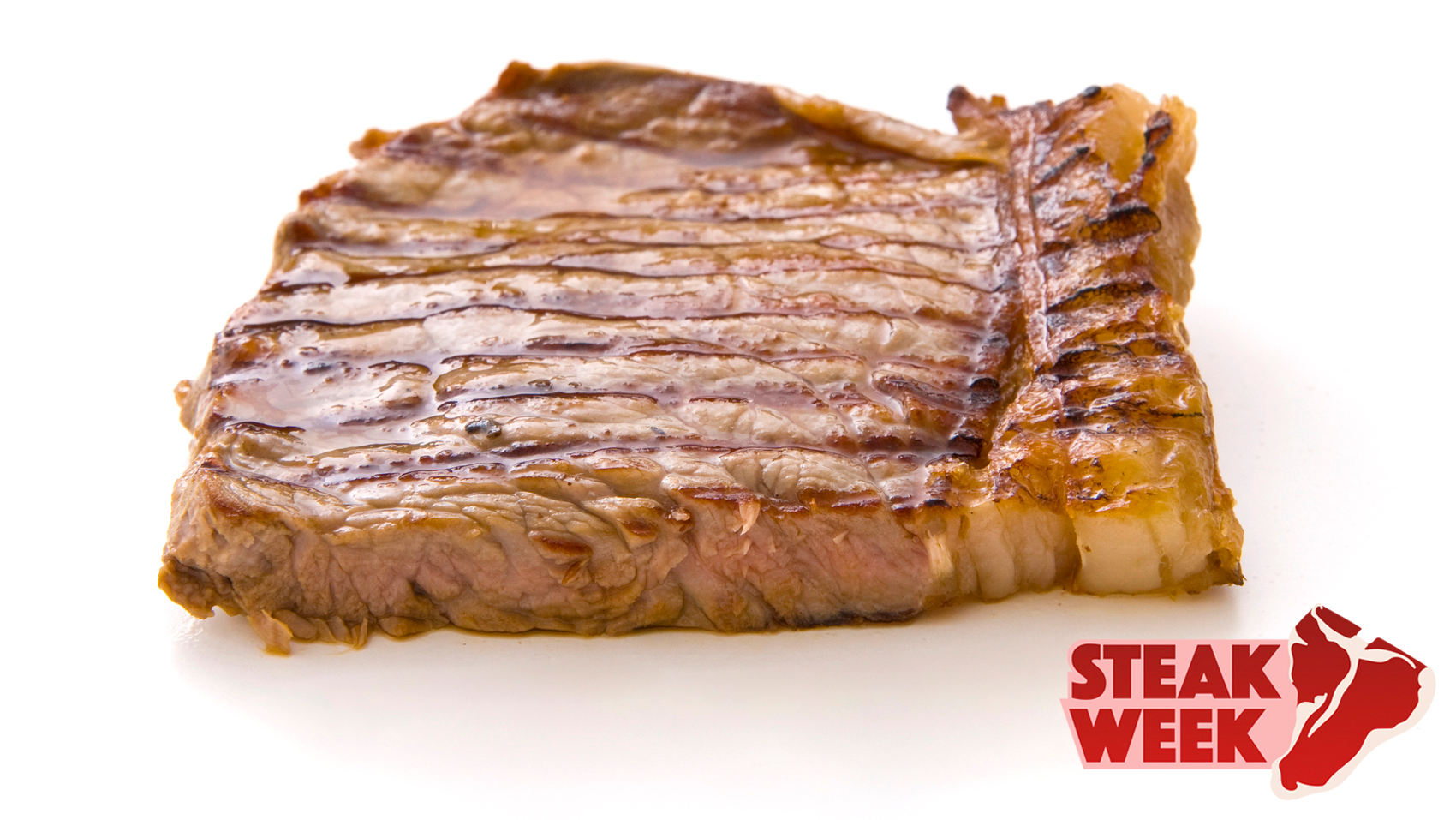What Chefs really think When You Order A Well-Done Steak
"We are not responsible for steaks ordered well-done."
This small caveat graces menus across the country, from Duanesburg, New York to Winneconne, Wisconsin to Gurnee, Illinois. And it impacts more people than you might expect: More than a third of customers—at least those who eat at LongHorn Steakhouse—prefer their steak medium-well or well done. With those numbers, most restaurants won't outright refuse to serve a steak well-done. Chefs might think it's an abomination, but after all, it's your money and it's your teeth that have to grind through the shoe leather.
Most chefs say that, begrudgingly, they'll cook your steak until it's brown all the way through. They might just wince while they do it.
"Our smoked chicken is fantastic, so if we can get somebody into that versus a well-done steak, we'll try to take that opportunity," Landon Brown, general manager at 3rd Street Tavern in St. Peter3, Minnesota, tells The Takeout.
The restaurant's servers won't refuse to take the order, but they might point out the meat-doneness graphic that graces the menu: If you're thinking about well-done steak, order chicken.

"If a server has an opportunity to make light of it a bit and make a funny comment based on the graphic, they usually take that opportunity," Brown says. "I find that guests usually have that understanding, too—they'll make a joke themselves about it like 'Yep, I want the steak really dead.'"
He says the kitchen does collectively roll its eyes when that order comes in: "It's always a joke in the back-of-the-house, when you see that well-done steak come back. Like 'Well, they wrecked it.' It's well known among service industry staff that well-done steak is a total no-no."
Still, he says, they'll grill and oven-finish the steak just like they would any other—except it takes about 10 minutes to make a well-done steak, versus the 4 or 5 minutes for a medium-rare steak. 3rd Street Tavern's chefs actually rely on their thermometers quite a bit when it comes to cooking well-done steak, because they're not in the habit of preparing them that way.
This same "the customer is always right" attitude prevails at even some of the most elite steakhouses.
"I have and will always cook steaks to well done," chef Danny McCallum of Jacobs & Co. Steakhouse in Toronto tells The Takeout. "If a guest wants it well done, then that is how they shall get it, without prejudice. As I see it, you are paying, you can have it however you like. I cook steaks to well done on a nightly basis."
(Jacobs & Co., by the way, offers a menu of beefy delicacies like 65-day-aged Prime Angus striploins and Japanese A5 Wagyu steaks that cost upwards of $300. McCallum's patience is truly admirable.)
But while these chefs politely say the customer is always right, they also acknowledge that the customer's taste is in this case, essentially, wrong. Is it ever okay to refuse a customer's request? I mean, what if I ask for my well-done porterhouse to be covered in peanut butter, or something?
"Personally, I think serving bad food is not okay and that overcooking anything shouldn't be done," Nick Kokonas, co-owner of Chicago restaurants Alinea, Next, and Roister. "But some things are personal preference and in the case of a basic steak, sure, burn it if the customer prefers that."
When it comes to more composed dishes, though, he says it's fair game to refuse certain requests. An example: When Next opened, it served a dish called Supreme De Poussin, a thin-sliced piece of chicken cooked sous-vide. A customer complained her chicken was undercooked and insisted it be returned to the oven; even after the waiter explained that, because of the sous-vide preparation, the chicken couldn't be cooked further, she was insistent.
"That table did not get their chicken well done," Kokonas says. "Did we lose that customer? Probably. Is that okay? Definitely."
Steaks, though, can be returned to the oven, and most restaurants—even the fanciest of steakhouses—will agree to cook your beef to within an inch of edibility if that's what you like. They might just issue a menu disclaimer to absolve themselves of gastronomic guilt.
